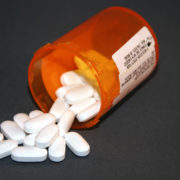These Drugs Prove Ineffective for Most Fibro Patients, Especially Long Term
A recent review of two well-known fibromyalgia drugs, Cymbalta (duloxetine) and Savella (milnacipran) confirms what I’ve said for the last two decades, and wrote about in my first edition Treating and Beating Fibromyalgia book in 2003. These drugs are ineffective for most fibro patients, especially long term.
The review published in The Cochrane Library shows that these drugs are ineffective for the overwhelming majority of fibro patients.
The Cochrane Group, is an international organization, whose primary aim is to help people make well-informed decisions about healthcare and health policy by preparing and maintaining high quality systematic reviews. It is a “not-for-profit organization.
Studies show that for fibro patients taking either of the two drugs, 22% report substantial improvement while 21% had to quit taking them due to unpleasant side effects. Almost as many had to quit as had substantial/meaningful improvement.
Here is The Cochran Library’s “plain language summary” of the results of this study:
Serotonin and noradrenaline reuptake inhibitors for fibromyalgia Researchers in the Cochrane Collaboration conducted a review of research about the effects of serotonin and noradrenaline reuptake inhibitors (SNRIs) on fibromyalgia syndrome (FMS). After searching for all relevant studies, they found 10 studies with up to 6038 people. Their findings are summarized below. Adults with FMS, who took the SNRIs duloxetine or milnacipran rather than a fake medication (placebo), were likely to have:
- reduced pain,
- slightly improved quality of life and reduced fatigue,
- no improvement for sleep problems,
- more drug-induced side effects and a greater likelihood of stopping medication.
- Serious side effects such as liver damage and suicidality were very rare. There was no difference between the SNRIs duloxetine or milnacipran and fake medication for these serious side effects.
What is fibromyalgia syndrome and what are serotonin and noradrenaline reuptake inhibitors? People with FMS suffer from chronic widespread pain, sleep problems and fatigue. There is no cure for FMS at present, so the treatments aim to relieve the symptoms and to improve quality of life. Serotonin and noradrenaline are chemicals which are produced by the human body, involved in the regulation of pain, sleep and mood. Low concentrations of serotonin have been reported in people with FMS. SNRIs are antidepressants that increase the concentration of serotonin and noradrenaline in the brain. The SNRIs duloxetine and milnacipran had been approved by the US Food and Drug Administration but not by the European Medicines Agency for the management of FMS. The US and European Regulatory Authorities differed in their judgment of the efficacy and safety of both drugs. Therefore it is important to know for people with FMS and healthcare providers on the effects of SNRIs on FMS.
Best estimate of what happens to people with FMS when they take duloxetine or milnacipran after an average of 18 weeks
 Pain was reduced by 50% in:
Pain was reduced by 50% in:
- 29 out of 100 people taking duloxetine or milnacipran (29% reported a 50% reduction-81% had less than if any reduction in pain)
- 19 out of 100 people taking placebo (the real drug was only 10% more effective than a sugar pill).
- Therefore, 10 more people in every 100 benefited from duloxetine or milnacipran than benefited from placebo (10% absolute improvement).
Sleep problems and fatigue:
People taking duloxetine or milnacipran reported a slight reduction in fatigue and the same amount of sleep problems as people taking placebo.
Disease-related quality of life (QOL):
- People taking duloxetine or milnacipran scored their quality of life as 14 (on a scale of 0 to100).
- People taking placebo scored theirs as 10 (not a big difference).
- This means that people taking duloxetine or milnacipran rated their quality of life four points higher than people taking placebo.
Savella is similar to Cymbalta, both are antidepressants known as selective serotonin and norepinephrine reuptake inhibitors (SNRIs). These drugs are supposed to help a person re-uptake and use the serotonin (calming brain hormone) and norepinephrine (stimulating brain hormone) more effectively. The approval of Savella was based on two clinical trials involving 2,084 fibromyalgia patients (1,460 on Savella and 624 on placebo). About 25 percent of people taking Savella had a positive response. This was considerably better than the 13 percent who had a positive response to placebo.
 However, while the maker’s of Savella will be sure to promote it as being twice as effective as a placebo, what they won’t say is what you now know – the drug failed to help 1,095 of the 1,460 participants in the study who were taking Savella. There are no studies directly comparing Savella to Cymbalta, although it’s likely that because of their similar mechanisms of action they would be similar in effectiveness.
However, while the maker’s of Savella will be sure to promote it as being twice as effective as a placebo, what they won’t say is what you now know – the drug failed to help 1,095 of the 1,460 participants in the study who were taking Savella. There are no studies directly comparing Savella to Cymbalta, although it’s likely that because of their similar mechanisms of action they would be similar in effectiveness.
If you’ve read my book, “Treating and Beating Fibromyalgia and Chronic Fatigue Syndrome,” or past articles on fibromyalgia, you know that those with fibromyalgia have low serotonin and norepinephrine levels due to bankrupting their stress-coping savings account. Serotonin is a brain chemical that helps regulate deep restorative sleep, reduces pain, boosts mood and mental clarity, and controls digestion and elimination (IBS). The brain chemical norepinehrine helps boost moods, mental and physical energy, and blocks pain. Restoring serotonin and norepinehrine to optimal levels often yields dramatic improvement in chronic pain, poor sleep, low moods, and brain fog associated with fibromyalgia. But using SNRI drugs like Savella is analogous to using a gasoline additive to help your car get more mileage out of the gasoline in their gas tank.
Unfortunately, for the majority of the individuals who suffer with fibromyalgia and or depression, they don’t have any serotonin or norepinephrine in their brains to re-uptake. A gasoline additive poured into an empty gasoline tank doesn’t help much, if at all. A SRNI drug given to someone with little to no serotonin or norepinephrine to re-uptake doesn’t do much – results are usually short-lived and disappointing. Several studies show that between 19-70% of those taking antidepressant medications do just as well by taking a placebo or sugar pill.
Studies now show that using SSRI’s eventually causes the brain to release less and less serotonin. Eventually the brain begins to reduce the number of serotonin receptors. This is reason why patient switch from one antidepressant to another. Studies show that the use of antidepressants causes the brain to release less and less serotonin and norepinephrine over time. SNRI drugs work by blocking the removal of serotonin and norepinephrine from its synapse.
Over time, the brain tries to compensate by shutting down the nerves that produce these two neurotransmitters. This is known as down-regulation. Eventually, the brain begins to reduce the number of serotonin and norepinephrine receptors, up to 40-60 percent in some parts of the brain until they literally disappear from the brain. Now the patient is really in trouble as depression, anxiety, chronic pain, irritable bowel, brain fog, and poor sleep become even worse. This may explain why patients often switch from one antidepressant drug to another in hopes of feeling better.
 Common side effects of prescription antidepressants may include anxiety, depression, headache, muscle pain, chest pain, nervousness, sleeplessness, drowsiness, weakness, changes in sex drive, tremors, dry mouth, irritated stomach, loss of appetite, dizziness, nausea, rash, itching, weight gain, diarrhea, impotence, hair loss, dry skin, chest pain, bronchitis, abnormal heart beat, twitching, anemia, low blood sugar, and low thyroid.
Common side effects of prescription antidepressants may include anxiety, depression, headache, muscle pain, chest pain, nervousness, sleeplessness, drowsiness, weakness, changes in sex drive, tremors, dry mouth, irritated stomach, loss of appetite, dizziness, nausea, rash, itching, weight gain, diarrhea, impotence, hair loss, dry skin, chest pain, bronchitis, abnormal heart beat, twitching, anemia, low blood sugar, and low thyroid.
Savella may be helpful, certainly safer than Lyrica, but no one suffers from a Savella or antidepressant deficiency.
The Cochran reviewers concluded: Treatment with drugs alone “should be discouraged,” the reviewers added.
In a news release about this study, two medical experts concluded:
“This is a very important study,” says Fred Wolfe, M.D. of the National Data Bank for Rheumatic Diseases. “There’s an enormous amount of advertising suggesting that these drugs really help, whereas the research data show that the improvement is really minimal.”
“The medical field does poorly with the treatment of fibromyalgia in general,” says Brian Walitt, M.D., M.P.H., a co-author of the review and an expert in pain syndromes at Washington Hospital Center in Washington, D.C. “Chasing [a cure] with medicine doesn’t seem to work.
I agree. No one has a drug deficiency. Chasing symptoms instead of correcting cause(s), is a recipe for disaster-drug, after drug, after drug with little if any long term relief. The only way to beat fibromyalgia, is to get healthy, drugs don’t make you healthy.
If you’re ready to feel good again, get off the drug for every symptom merry go round call the clinic and set up a phone or in clinic consult 205-879-2383, read my book or start the Jump Start supplements. Do something, anything, but do something-life is too short to feel bad all the time.
RELATED LINKS:
Dr. Murphree’s Most Recommended All-Natural Supplements
Dr. Murphree’s Jump Start Weight Loss Program
Treating and Beating Fibromyalgia Members Site





I have been following u for two years but have not financially been able to see u. I hope this will be my year. I have so many symptoms that u discuss. There has even been some discussion that I may have M S. I am now having sight issues but not a single doctor has even thought I had fibro. I have had one who told me I had chronic fatigue. I cry after I leave every doctor because they make me feel like I’m crazy and a hypochondriac . I had a friend die Easter from her “made up, attention seeking symptoms”. I feel like each doctor treats their specialty but not my body as a whole. I had sinus surgery 15 months ago because I kept a sinus infections that drug no longer touch. Needless to say, I am still on that roller coaster ride! For the last five weeks I have had two steroid shots, two shots of antibiotics, two rounds of antibiotics and am as sick as I was the first day. I believe I am becoming immune to almost all antibiotics. I have made a few strides toward health improvement but look forward to the day I can feel good more days! Thank you for giving me hope!!